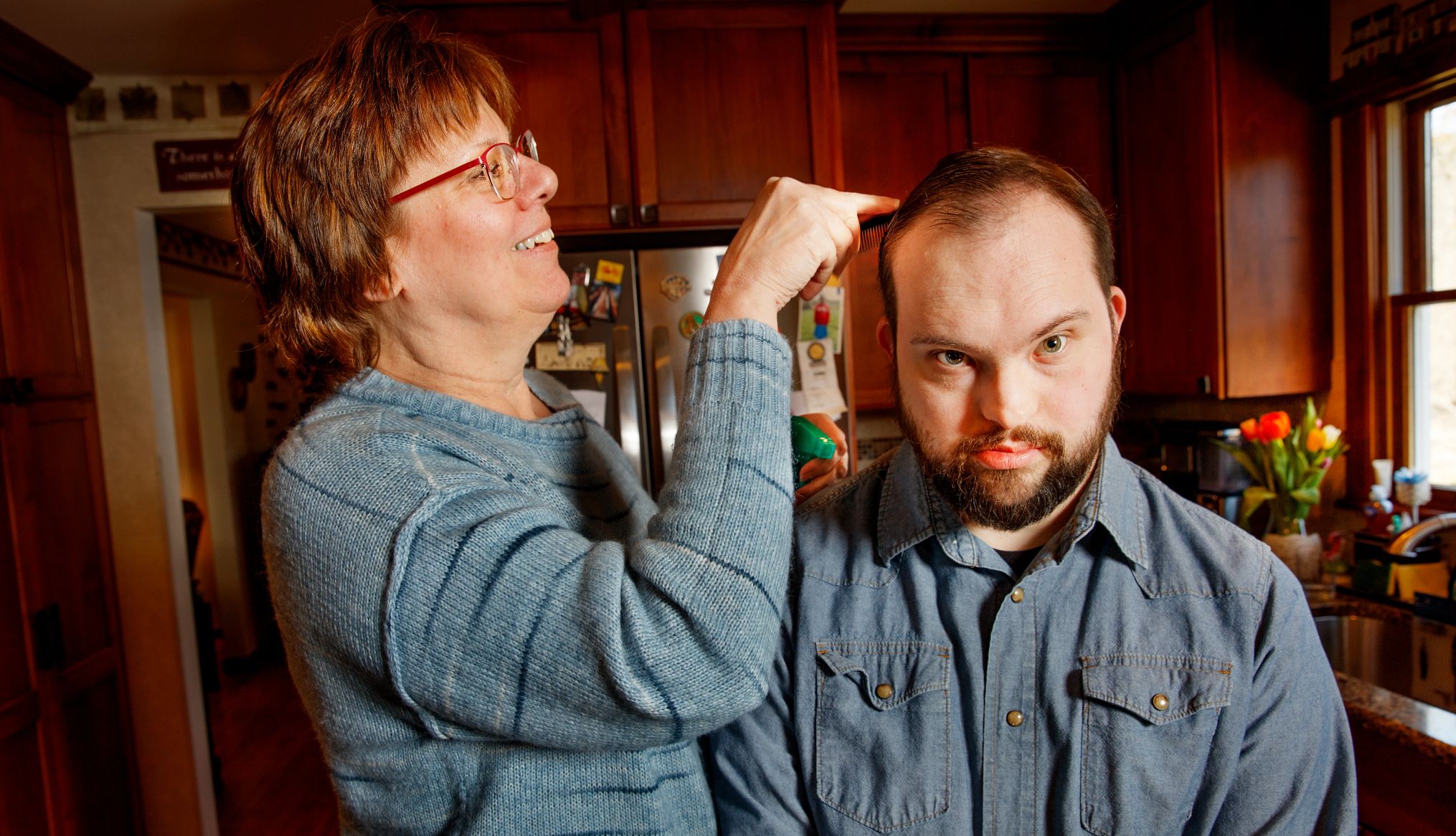Play all audios:
Piorkowski hopes to retire at 67 from her paying job as an executive assistant at an insurance company. Until then, caring for Ray is like a second job, she says. “I figure out his
schedule, keep the budget, hire aides. If a person can’t make it or an activity is changed, it becomes a Rubik’s Cube. I’m trying to shift things around. It’s always shifting, always
thinking.” Now that she’s been doing it for so long, “it’s just life,” Piorkowski says. “I can imagine someone who doesn’t have the time and the resources could be missing out on a lot that
their child is entitled to.” Many parents of children with disabilities take a similar view. “I’m just kind of like, oh, OK, this is what we’re going to do,” says Rampold. “Millions of
people have done this, so I can do it.” That doesn’t make it any easier. “I don’t know how they get up in the morning and face another day,” Murray says of parents caring for adult children
with disabilities. Murray, who is 70 and newly retired, speaks from experience: As part of a host home program in Pittsburgh, she and her husband, Joe, took in three children with Down
syndrome — one abandoned, one orphaned and one from an underdeveloped country. Now in their 50s, they ended up becoming family. (“They adopted us,” Joe quips.) Friends of the couple “have
moved south, they’ve moved to Florida, they play golf every day, they go out for dinner whenever they want,” Nancy says. “When you have an adult child with a disability, that’s just not your
life.” As they age, these parents often find themselves serving as dual caregivers. “It’s hard enough [caring for an adult child with a disability] when you have a spouse and a partner that
are with you, but then all of a sudden your spouse or partner may die or become incapacitated themselves because of illness,” Nancy says. “Then you might have Mom who is now caring for the
adult child with a disability and a husband with dementia.” For these retirees, “the word ‘retirement’ doesn’t mean the same thing. You can’t just go to Mexico and chill out on the beach,”
Vogel says. “What does retirement even look like when you’re giving up so much of your life?” Many confront another responsibility: planning for what happens when they die. “If you were to
ask any parent what their main concern is, probably most would tell you, ‘Who will take care of my child after I’m gone?’ ” says Piorkowski. On that score, she is relatively lucky: Her other
son, Calvin, is Ray’s coguardian. “I’ve heard from some older parents the saying, ‘I pray to live one day longer,’ ” she says. “Meaning, we can’t bear to think of what will happen to our
children without us. But nor do we want to live without them, because we love them so much.”

